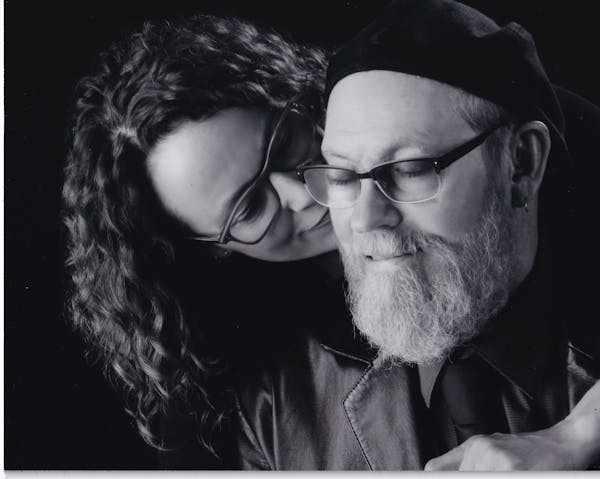 See
more of the story
See
more of the story
It's a comedy show about abortion, fittingly called, "Oh God, A Show About Abortion."
Alison Leiby, a comedian and writer whose work includes "The Marvelous Mrs. Maisel," landed on the title when imagining the average person's reaction to the premise of her one-woman show.
"In my mind, it's somebody saying, 'Omigod, how could that possibly be funny or enjoyable?'" she told me. "Like, who could possibly want an hour about that?"
The twist is that her show is about much more than the abortion Leiby had three years ago. It's a meditation on birth control, sex education, women's health care, periods and the stigma against women who are childless by choice. But it's light, observational comedy, with lots of jokes and laughs, intended to humanize the experience of abortion.
And what a moment in history to broaden the conversation. Weeks after she debuted her off-Broadway show in April, a Supreme Court leak foretold its decision overturning Roe vs. Wade.
Now, fresh on the heels of midterm elections shaped by women voters defending their right to abortion, Leiby (LIE-bee) is bringing her show to the Parkway Theater in Minneapolis on Friday. When she talks about her abortion, she recalls that day vividly, including the panic that she felt over what to wear. These are the mundane details about abortion that you don't hear in today's supercharged political environment.
By simply talking about the procedure, she's heard from other women who've finally opened up about theirs. One audience member told the comedian that after seeing her show, she was determined to tell her own grown daughters about the abortion she had when she was younger.
"I don't think that everybody who has an abortion should have to share it with people," Leiby said. "But if the reason you're not sharing it is because you feel that you can't, I hope the show can nudge people to be more open about it."
Here's more from my talk with Leiby, edited for length and clarity.
Q: What about abortion is funny?
A: Nothing and everything. When it's just this vague concept of a right or a freedom, and one often associated with trauma, it gets hard to joke about abortion. I think it's much more challenging than speaking from personal experience and being authentic: Well, here's how I felt, and then this happened. That just makes it a lot easier for people to get out of their own way with what they think about the topic, and just kind of listen and enjoy.
Q: It sounds like what you're trying to do is normalize this procedure.
A: Absolutely. We hear a lot of the narratives that get the most amplification when we talk about abortion, rightfully. You hear about victims of assault, incest and rape. We need abortion for all those things. But we also need abortion rights for people who find out they're pregnant and don't want to be pregnant — and that's the end of the story. We don't talk about those stories as much, and we need to include them in the fight for reproductive freedom.
Q: Abortion is often discussed as something that's deeply traumatizing for the woman. Did you feel that way after the procedure?
A: I did not at all, which is another reason I wanted to start working on the show. I had no trauma around the way I got pregnant, nor around my decision to have an abortion, nor around my access to an ability to have one. So for me, it was this completely non-emotional journey. But we're taught that it is this heavy, dark thing. And then the only real emotions I had around my abortion were that I felt bad that I didn't feel bad enough.
Q: Is it scary to talk about something so polarizing and vulnerable while on stage?
A: It's easy to talk to a group of people who came to see someone talking about abortion. What's much harder to talk about is not wanting to have kids. There's my own emotional journey with finally accepting that. I talk a lot about the experience of being child-free, and how every part of our culture is pressuring women to have families and give birth, as if that is how you bring value to society.
Q: Did fallout from the overturning of Roe change the tenor of your show?
A: There are five sentences toward the end of the show where I address privilege and access. I'm a cis white woman with money. I walked into Planned Parenthood, no problem. It was not scary. What's at stake now, and more so now than ever, is everybody who doesn't fit into that extremely privileged space — and that's most people who seek abortions. That moment had become much more emotional for me. But it hasn't changed. If anything, it's felt even more powerful.
If you go
"Oh God, A Show About Abortion," 8 p.m. Fri., Parkway Theater, 4814 Chicago Av. S., Mpls. Tickets: $25-$35 at theparkwaytheater.com.








